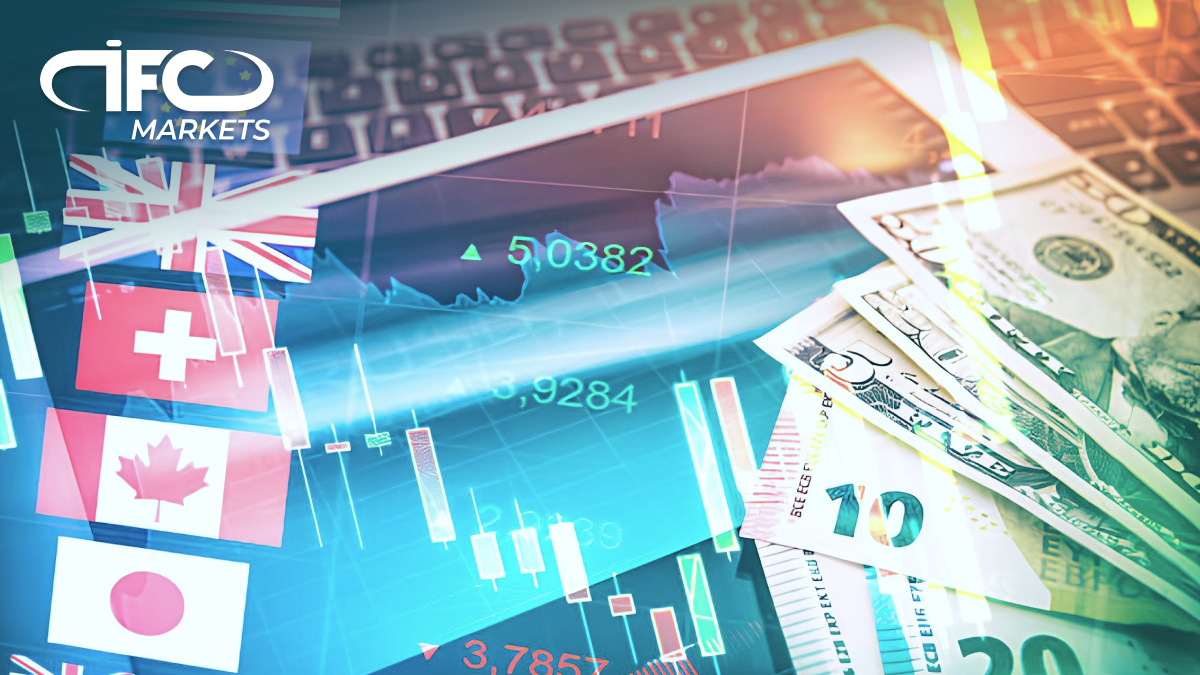- Education
- About Forex
- Foreign Currency Trading
Foreign Currency Trading
Foreign currency trading is the buying or selling of currency pairs on the foreign exchange market at a specific exchange rate. It involves buying one currency while selling another in order to profit from the movement of the currency.

The forex market is one of the largest and most liquid markets in the world. The global forex market in 2022 is worth $2,409,000,000 ($2.409 quadrillion).
Before you travel to, say, Mexico from the US, you can exchange your US dollars for Mexican pesos. You use American money to buy Mexican money. Of course, the exchange rate fluctuates constantly. This is where currency trading as an investment comes to the rescue.
Also can learn what is Forex trading and how does it work as well. But if you are interested, we welcome you to jump start now.
KEY TAKEAWAYS
- Foreign currency trading is the buying or selling of currency pairs on the foreign exchange market at a specific exchange rate.
- A currency pair is simply two currencies that you trade against each other side by side, denoted by a three letter abbreviation for each currency.
- The participants in the foreign exchange market are commercial banking structures, the Central Bank, various types of exchanges, brokerage companies, and international organizations.
- Even if you do not trade Forex yourself, the international currency market can play an important role in your daily life.
What is Foreign Currency Trading
If you trade foreign currencies, you will do so on a foreign exchange or on the Forex market. A currency pair is simply two currencies that you trade against each other side by side, denoted by a three letter abbreviation for each currency. Thus, you usually see the US dollar/Mexican peso-dollar pair represented as (USD/MXN). The yen-euro pair is represented by (JPY/EUR).
There are a few commonly used terms that you should be aware of - every currency pair has an ask and a bid. The ask is what it will cost you to buy the currency, while the bid is what you get if you sell the currency. The difference between the bid and the ask is the spread.
You will see that currency pairs are quoted in pips. Usually a pip is 0.0001. We use a pip to calculate the spread between bid and ask.
How does Currency Trading Work
The Forex trading market is a decentralized global network that works 24 hours a day, five days a week. In the forex market, traders buy and sell foreign currency pairs based on their value against each other.
To understand it better let’s see it on the example
Here’s an example of a forex trade with the USD/MXN foreign currency pair:
Let’s say you are planning to travel from Mexico to the USA. So that you can spend local money when you arrive, you convert some Mexican peso (MXN) into US (USD) dollars.
The exchange rate at the time was $1 USD = 19.95 MXN. Therefore, you spend 100 Mexican peso to buy $5 US dollars. Your foreign currency pair is USD/MXN.
Now let’s say you stay in the USA for a week but don’t spend any of the cash you brought with you. On the way home, you can change it back into Mexican peso dollars.
However, the market has now changed. Now, $1 USD equals 25 MXN. The Mexican peso has increased in value. Now, your $5 US dollars will buy $125 Mexican peso.
You have made a profit because of the change in the value of each currency.
This is an example of a real-world use case. The only thing is, when you trade on the forex market, you are making a similar transaction without the need of traveling. Forex traders are opening these positions from home, or anywhere in the world, by using a forex trading account.
What Moves the Forex Market
Central Bank Interest Rates
Either Central bank is raising interest rates, or cutting interest rates and, of course, keeping it on the same level. Reasons behind changing interest rates can be very different. For example, when the Central bank is raising interest rates, the general thought is that the economy is growing and they are optimistic about the future, but it could also mean that there is a short term strategy in place to boost quick money flow into the budget, etc.
Traders try to anticipate what the central banks are going to be doing with the rates. If traders expect an interest rate spike, they typically begin buying that currency well before the central bank is scheduled to make the decision, and vice versa. If a trader's hunch is wrong, there would be money loss and lots of tears. Thus, they should be well versed in countries' economies of whose currencies they trade on.
Trade Flows
Trade Flows measure the net exports and imports of a given country. In reference to currency: when exports are greater than imports, it means possible currency depreciation, this way consumers abroad will perceive the foreign currency to be cheaper. And vice versa.
Capital Flows
Capital Flows is the net quantity of currency traded (bought or sold) through capital investments.
- Physical Flows – is when foreign entities sell their local currency and buy foreign currency to make foreign direct investments (f.e. joint ventures, acquisitions, etc.)
- Portfolio investments – is when investments are made on global markets, variable and fixed income market investments (Forex, stocks, T-bills, etc.)
Central Bank Intervention
Sometimes the value of currency needs intervention, so much so the Central bank feels the need to directly influence the value in its favor, otherwise it could damage the economy. For example, when the economy depends on exports, it’s much preferable when the currency of the country doesn't gain too much value.
Financial News
News can move the market in very extreme ways. Some news is planned and can be biased towards some investors over others, in this case there is a small chance of overturning the damage, and some news isn’t planned - simply manage risks and hope not getting negatively affected.
Not all news are market movers, traders have to learn which one to look for, to be able to make market predictions and draw strategy. For example, employment reports from the major financial centers tend to move markets more than a manufacturing sales report, and a retail sales figure riles things up more than a monetary supply report.
The Forex Economic Calendar is a great resource to help traders determine which reports provide the most punch. Knowing when the markets will move can be one of the greatest advantages traders can have.
Greed & Fear
Greed & Fear - are great amplifiers; fear can turn a falling instrument into an all-out panic and greed can turn a rising market into a blind-buying spree.
Participants of Foreign Exchange Market
At the present stage of development, the participants in the foreign exchange market are commercial banking structures, the Central Bank, various types of exchanges, brokerage companies, and international organizations.
Let’s check them out
- Central bank. Its functions include managing the formed foreign exchange reserves of the state and ensuring the stability of the national currency. To solve the tasks set, the Central Bank can carry out both direct foreign exchange interventions and exert indirect influence by regulating the level of the interest rate, and reserve requirements, etc.
- International investment firms, various pension and hedge funds, insurance companies. The main goal of such participants is diversified asset portfolio management, which can be achieved by investing in securities of governments and corporations of various countries. In dealer slang, they are simply called funds. These funds also include large transnational corporations that carry out foreign production investments: the creation of branches, joint economic entities, etc.
- Firms operating in foreign markets. Applications of importers form a stable demand for currency, and exporters - its supply, including in the form of various kinds of foreign currency deposits, which is understood as temporarily free balances in foreign currency accounts.
- Currency exchanges. In some states, national currency exchanges function, the functions of which include the exchange of currencies for business entities and the formation of a market exchange rate. The state, as a rule, actively regulates the exchange rate level, taking advantage of the compactness of the local exchange market.
- Currency brokers. They bring together the buyer and seller of foreign currency and ensure the execution of a conversion or loan and deposit operation between them. For their mediation, brokerage companies usually charge a brokerage commission as a percentage of the transaction amount. However, the amount of such a commission, as a rule, is less than the difference between the loan interest of the banking structure and the bank deposit rate. Banking structures can also perform this function.
- Commercial banking structures. A significant share of transactions in the foreign exchange market is carried out by commercial banking structures, which not only quite often diversify their portfolios with foreign currency, but also conclude foreign exchange transactions on behalf of companies that enter international markets as exporters and importers.
Bottom line on Foreign Currency Trading
Even if you do not trade Forex yourself, the international currency market can play an important role in your daily life. Although the consequences of a stock market crash are not always so obvious, changes in the value of a currency can significantly affect the prices of goods and services.
Forex market provides a unique alternative to stocks. Forex trading may seem less accessible to small investors than trading cryptocurrencies or stocks, however, with the increase in the number of online brokers and increased competition in the provision of financial services, the prospects for working in Forex are becoming more real.
FAQs
How does Forex Work?
Forex (Foreign Exchange) is a huge network of currency traders, who sell and buy currencies at determined prices, and this kind of transfer requires converting the currency of one country to another. Forex trading is performed electronically over-the-counter (OTC), which means the FX market is decentralized and all trades are conducted via computer networks.
What is Forex Market?
The Forex market is the largest and most traded market in the world. Its average daily turnover amounted to $6,6 trillion in 2019 ($1.9 trillion in 2004). Forex is based on free currency conversion, which means there is no government interference in exchange operations.
What is Forex Trading?
Forex trading is the process of buying and selling currencies at agreed prices. Most currency conversion operations are carried out for profit.
What is The Best Forex Trading Platform?
IFC Markets offers 3 trading platforms: MetaTrader4, MetaTrader5, NetTradeX. MT 4 Forex trading platform is one of the most downloaded platforms which is available on PC, iOS, Mac OS and Android. It has different indicators necessary for making accurate technical analysis. NetTradeX is another trading platform offered by IFC Markets and designed for CFD and Forex trading. NTTX is known for its user-friendly interface, reliability, valuable tools for technical analysis, distinguished functionality and the opportunity to create Personal Composite Instruments (PCI) which is available specifically on NetTradeX.

